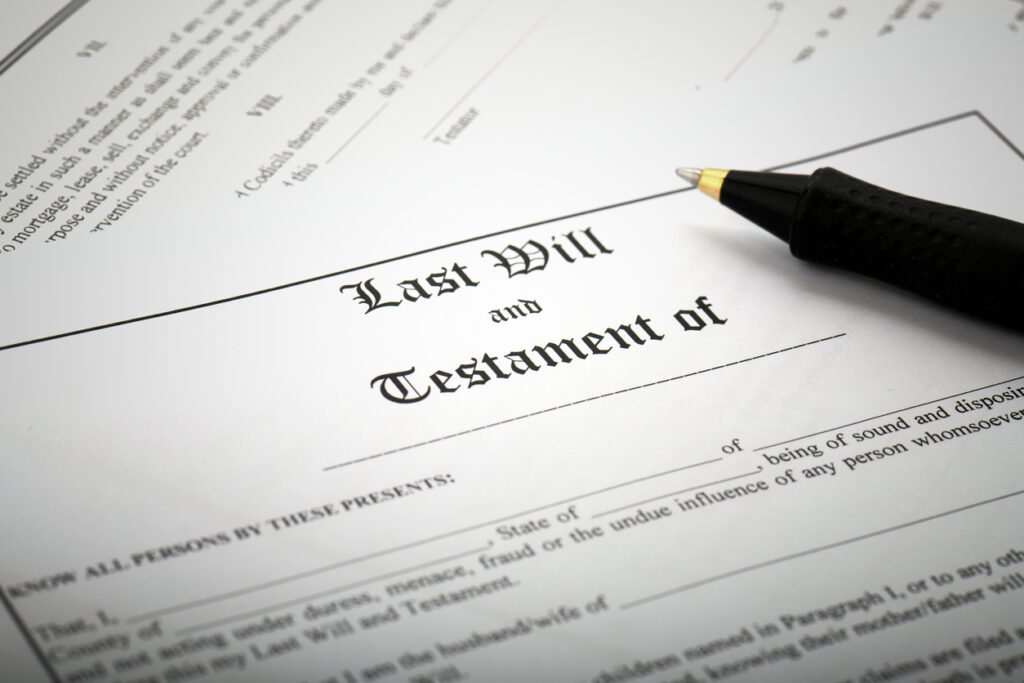Whether young, old, wealthy, or broke, we all have one thing in common: the need for a will. According to a caring.com survey, however, only 58 percent of adults in the United States have a will or living trust. The number is higher for adults with minor children, but not high enough.
So, what is a will and why do you need one?
First, let’s begin with defining a will. Also called a last will and testament, a will is simply a document that states your final wishes. A will can protect your family and property by allowing you to leave your assets to people or organizations, name conservators for your children, name a trustee, and name an executor.
The need for a will is obvious for people who own a business or have investments, real estate, children, or any combination of these assets. Only a will ensures that your decisions about property, money, and guardianship are carried out after you die.
However, even someone with no property, children, or savings should consider the necessity of a will. Dying without a will is known as intestate. In Texas, dying intestate means your assets will follow intestate succession laws and go to your nearest relatives. (This chart outlines the legal effect of not having a will in Texas.)
In most states, your property is distributed to an heir. If no relatives are found, the state gets to keep whatever property is involved. Heirs typically include your surviving spouse, siblings, parents, aunts, uncles, nieces, nephews, or cousins.
With intestate succession, heirs have no say in the matter. The process can take months or years to pay out, depending on the size of the estate.
The best way to proceed, before it’s too late, is to hire a lawyer to ensure your will is legally written and filed and easily accessible to your heirs. Lawyer fees are relatively low for drafting a simple legal will in Texas. Many free services are available through different websites for anyone who prefers the do-it-yourself approach.
To make a will legal in Texas, you can follow one of two options. A legal will in Texas must be signed in front of two witnesses, who must also sign the will. To have the capacity to write a will, one must be 18 years or older. A person making a will (a testator) must be of sound mind. To be of sound mind, a testator must possess the ability to understand the legal ramifications of making a will and know their belongings.
Wills must be signed to be legal. A holographic will is one that is completely handwritten by the testator. In Texas, holographic wills do not need to have a witness signature.
Attested wills are signed by witnesses. They may be typed and prepared by a lawyer. Two witnesses are required to validate an attested will. Testators have the option of signing a self-proving affidavit with a notary to save a witness from having to be called in front of a court to testify to a will’s validity.
Upon the testator’s death, the person in possession of a deceased person’s will should file the will in the county court where the testator lived. The probate court will then begin the process of carrying out the instructions in the will.
For complex cases, or extra piece of mind, local lawyers in Marble Falls, Llano, and Burnet have extensive experience with wills and probate cases. Should a relative die without a will, an attorney in the Highland Lakes can offer guidance through the intestate succession process. If you don’t want your family to go through that then drafting a simple will can save time, money, and stress on everyone.
Check out any of these local attorneys for help in answering questions you might have about filing a will.
Why You (Yes, Even You!) Need a Will

NULL
